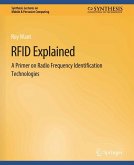Managing data in a mobile computing environment invariably involves caching or replication. In many cases, a mobile device has access only to data that is stored locally, and much of that data arrives via replication from other devices, PCs, and services. Given portable devices with limited resources, weak or intermittent connectivity, and security vulnerabilities, data replication serves to increase availability, reduce communication costs, foster sharing, and enhance survivability of critical information. Mobile systems have employed a variety of distributed architectures from client-server caching to peer-to-peer replication. Such systems generally provide weak consistency models in which read and update operations can be performed at any replica without coordination with other devices. The design of a replication protocol then centers on issues of how to record, propagate, order, and filter updates. Some protocols utilize operation logs, whereas others replicate state. Systems might provide best-effort delivery, using gossip protocols or multicast, or guarantee eventual consistency for arbitrary communication patterns, using recently developed pairwise, knowledge-driven protocols. Additionally, systems must detect and resolve the conflicts that arise from concurrent updates using techniques ranging from version vectors to read-write dependency checks. This lecture explores the choices faced in designing a replication protocol, with particular emphasis on meeting the needs of mobile applications. It presents the inherent trade-offs and implicit assumptions in alternative designs. The discussion is grounded by including case studies of research and commercial systems including Coda, Ficus, Bayou, Sybase's iAnywhere, and Microsoft's Sync Framework. Table of Contents: Introduction / System Models / Data Consistency / Replicated Data Protocols / Partial Replication / Conflict Management / Case Studies / Conclusions / Bibliography
Dieser Download kann aus rechtlichen Gründen nur mit Rechnungsadresse in A, B, BG, CY, CZ, D, DK, EW, E, FIN, F, GR, HR, H, IRL, I, LT, L, LR, M, NL, PL, P, R, S, SLO, SK ausgeliefert werden.
Hinweis: Dieser Artikel kann nur an eine deutsche Lieferadresse ausgeliefert werden.









